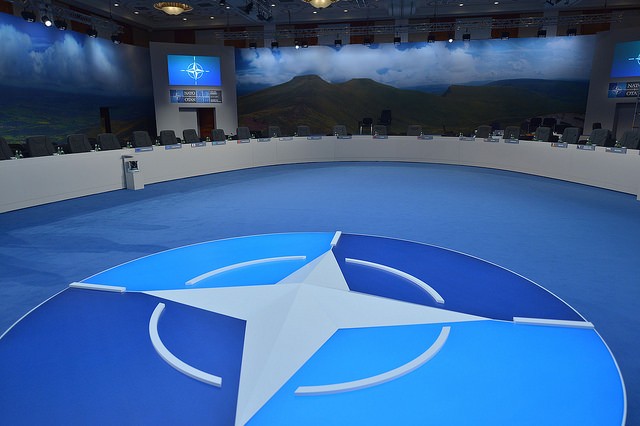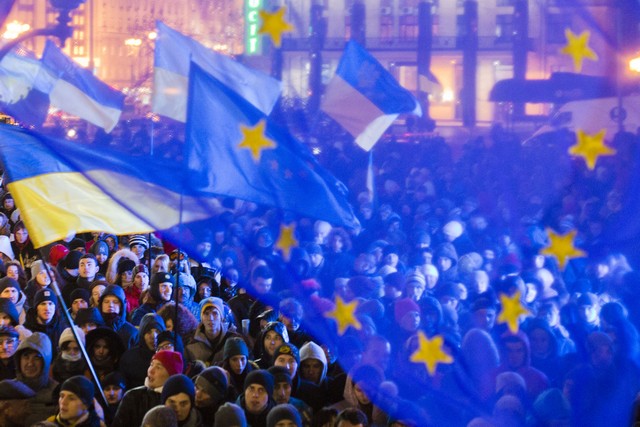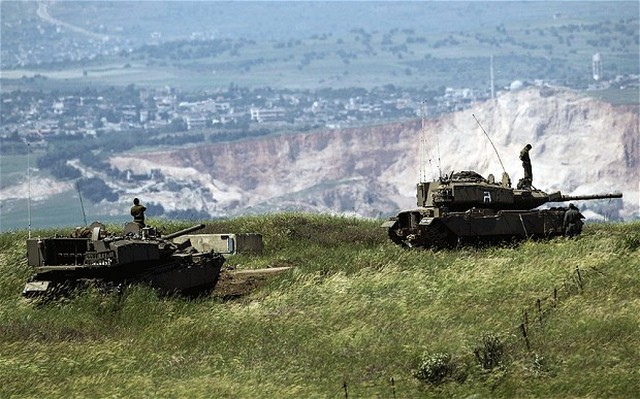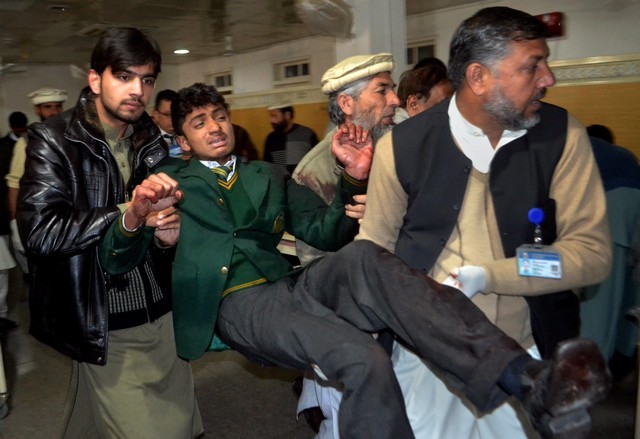By Patrick Martin
In an action calculated to provoke further conflict with Russia, Ukraine’s parliament voted Tuesday to repeal legislation defining the country as “non-aligned,” and thus barring it from joining the North Atlantic Treaty Organization. The vote came by an overwhelming margin, 303 to 8, one month after President Petro Poroshenko declared his support for the step.
The two major right-wing parties in parliament, headed respectively by Poroshenko and Prime Minister Arseniy Yatsenyuk, spearheaded passage of the measure. Ultra-right and neo-fascist deputies also voted to pave the way for the country’s entry into the US-dominated military alliance.
Ukraine is not expected to formally apply for NATO membership anytime soon, because its armed forces are well below the NATO standard in terms of armaments, training and budget. Given Ukraine’s near-bankruptcy, the military buildup required to reach that goal can only proceed slowly.
But the goal has been set. Addressing parliament before the vote, Ukrainian Foreign Minister Pavlo Klimkin said, “This will lead to integration in the European and the Euro-Atlantic space.” A NATO spokesman responded in kind, saying, “Our door is open and Ukraine will become a member of NATO if it so requests and fulfills the standards and adheres to the necessary principles.”
The main significance of the vote was as a political gesture of hostility towards neighboring Russia. Speaking to a group of foreign ambassadors in Kiev on the eve of the vote, Poroshenko said that Ukraine’s “fight for its independence, territorial integrity and sovereignty has turned into a decisive factor in our relations with the world.”
Russian government officials responded angrily. Prime Minister Dmitri Medvedev said there would be “negative consequences” for Ukraine’s breaking with non-alignment. “In essence, an application for NATO membership will turn Ukraine into a potential military opponent for Russia,” he said.
Russian Foreign Minister Sergei Lavrov called Ukraine’s action a “counterproductive” step that would increase political tensions. “It will only escalate the confrontation and creates the illusion that it is possible to resolve Ukraine’s deep internal crisis by passing such laws,” he said.
Actual NATO membership would mean that the United States and its European allies would be legally obligated under Article IV of the NATO treaty to go to war in defense of Ukraine, an obligation that would extend to Ukraine’s claim to Crimea, annexed by Russia earlier this year, and to the eastern territories now controlled by pro-Russian separatists.
Since this would threaten war between nuclear-armed powers, the major European countries, including Germany and France, have discouraged talk of NATO membership for Ukraine. But the Obama administration has had no such reservations.
At Wednesday’s State Department press briefing, spokeswoman Marie Harf merely paraphrased the official NATO statement, saying, “[T]he door is open … countries that are willing to contribute to security in the Euro-Atlantic space are welcome to apply for membership. Each application will be considered on the merits.”
She concluded, “[A]ny decision on potential NATO membership is one for Ukraine and NATO to make.” In other words, Russia has no say on whether NATO tanks and warplanes should be stationed on its doorstep.
Ukraine only formally adopted non-aligned status in 2010, when Russian-backed Viktor Yanukovych was president and his party controlled parliament. But the principle that Ukraine would not join NATO, founded as an anti-Soviet, anti-Russian military bloc, was accepted by both Stalinist and imperialist officials at the time of the breakup of the Soviet Union.
In 1991, when Ukraine became an independent republic rather than a constituent member of the USSR, the country gave up its portion of the Soviet nuclear arsenal, which was dismantled under international supervision, and the NATO powers tacitly agreed that the US-dominated bloc would not expand into the territory of the former Soviet Union. This agreement was broken during the Bush administration, when Lithuania, Latvia and Estonia were admitted as NATO members.
The integration of Ukraine into NATO would be another matter entirely, bringing NATO forces nearly as far east as Hitler’s armies reached in the days leading up to the battle of Stalingrad, 72 years ago, the turning point in the fighting on the Eastern front in World War II.
Hitler conquered virtually the entire territory of present-day Ukraine, a feat which German Chancellor Angela Merkel and the US President Barack Obama seek to duplicate, not through open invasion, but by the use of cash, political subversion and neo-Nazi gangs.
Russian officials reiterated their opposition to Ukraine entering NATO in the talks that led to the September 5 ceasefire between Kiev’s forces and pro-Russian separatists in Donetsk and Luhansk provinces of eastern Ukraine.
These talks were set to resume today in Minsk, capital of Belarus, but the Ukraine parliament vote makes that problematic. Already, leaders of the pro-Russian separatists said they might not attend because the Ukrainian government has cut off state pensions and other forms of social benefits for those living in the separatist-controlled territory.
Ukrainian government officials said Monday that they might step up the pressure on the eastern region by cutting off electricity supplies. Deputy Energy Minister Oleksander Svetelyk said that the fighting in the east had disrupted coal production in that area, which supplies coal-burning power plants.
“In order to save the power system we need to impose limits on everyone,” he said. “There are no regions of Ukraine that will not be subject to rolling blackouts.” If the eastern region refused to ration electricity under instructions from his ministry, the supply would be cut off entirely, he said. Ukraine has a daily deficit of 3,500 megawatts, and coal reserves are only one-third of the supply usually needed at the beginning of winter.
The electricity crisis is only part of a more general economic and social collapse in Ukraine. The Yatsenyuk government has adopted a radical program of social austerity, aimed at slashing consumption and public spending in line with demands from the European Union and the International Monetary Fund. The Washington Post hailed the program of budget-cutting and privatization in an editorial Wednesday that called the Yatsenyuk cabinet “a technocrat’s dream,” and noted the presence of “Natalia Jaresko, a US citizen and highly respected investment banker who has taken over the finance ministry.”
24 December, 2014
WSWS.org










